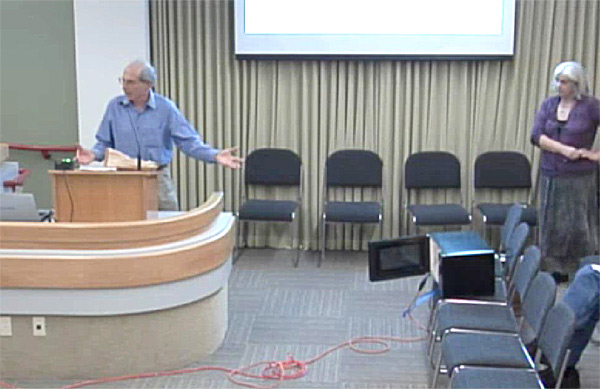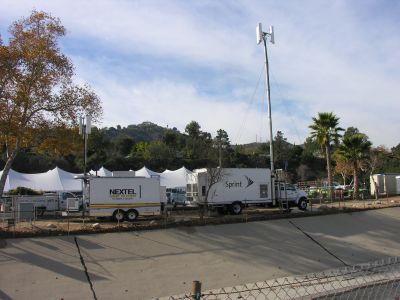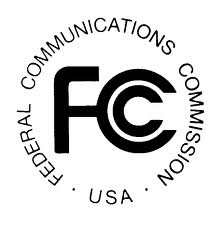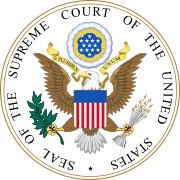That’s the question that my colleague and friend, John Pestle discusses in his latest blog post at:
http://www.varnumlaw.com/blogs/cell-phone-tower/whats-a-cell-tower-lease-worth/
Recommended; interesting reading.
-Jonathan
That’s the question that my colleague and friend, John Pestle discusses in his latest blog post at:
http://www.varnumlaw.com/blogs/cell-phone-tower/whats-a-cell-tower-lease-worth/
Recommended; interesting reading.
-Jonathan
 The FCC voted to approve T-Mobile’s application to acquire MetroPCS.
The FCC voted to approve T-Mobile’s application to acquire MetroPCS.
The next step–and perhaps the last real hurdle before the merger can be completed–is an affirmative vote of MetroPCS shareholders during a scheduled April 12 shareholders meeting.
For MetroPCS site landlords, this is a major step towards the shuttering of some 10,000 MetroPCS sites. See my story on this from last November.
Most likely, the earliest hits will occur to cell sites that presently have both MetroPCS and T-Mobile leases. The likely next round will be for MetroPCS sites located near existing T-Mobile sites. Finally, it’s quite likely that some T-Mobile sites will be shuttered where an existing collocated or nearby MetroPCS site will better suit the needs of the merged company. This may well be the case if you area a T-Mobile site Landlord currently receiving an ab0ve-market rental rate, and a suitable nearby MetroPCS site is available for joint use.
If you are presently a MetroPCS or T-Mobile site Landlord, Telecom Law Firm, P.C. is offering a no-charge, no obligation lease review to help you quantify your risk, prepare for possible site termination, and develop strategies to deal with the outgoing carrier. Just give us a call toll-free on 855-CELL SITE (855-235-5748 ) and let’s talk. You won’t be on the clock.
 Michael Friedman shared this sad news with members of SCAN NATOA today.
Michael Friedman shared this sad news with members of SCAN NATOA today.
Michael’s select words cannot begin to capture the essence of Carl, who–with his young squire, Michael–steered cable franchising on the national stage for the benefit of literally millions of Americans who will never know Carl existed, or how he touched their lives.
Carl was a gentle man, a gentleman, and a teacher.
I’m lucky to have known him.
-Jonathan
 I recently received a phone call from a very senior government rep of a very large wireless carrier. The carrier’s rep called to share his displeasure that the city I frequently work with would not administratively grant approval of what he determined to be subject to Section 6409(a) of the Middle Class Tax Relief Act as modification project of an existing cell site.
I recently received a phone call from a very senior government rep of a very large wireless carrier. The carrier’s rep called to share his displeasure that the city I frequently work with would not administratively grant approval of what he determined to be subject to Section 6409(a) of the Middle Class Tax Relief Act as modification project of an existing cell site.
Here are the general facts:
The government planner for the city involved told the carrier’s rep that he would have to submit his request following the usual application process, and that the project could be scheduled quickly for Planning Commission review. The carrier’s rep told the planner that the cty is obligated to process 6409(a) projects administratively and to then grant approval without a hearing. The carrier’s rep threatened to sue the city if the project was not administratively approved. He made the same assertion and threat to me when we talked.
I told the carrier’s rep that nowhere in 6409(a) did Congress define an administrative process–much less any specific process–that a local jurisdiction must follow when considering (1) whether a project is subject to the benefits of 6409(a) treatment, and (2) if the project is subject to 6409(a) treatment whether the project must be approved administratively. He disagreed, saying that its employer’s problem if the city has no administrative process to follow, and that 6409(a) requires it.
What I told the carrier’s rep is that where no administrative procedure exists to override a Planning Commission condition on an approved project, the condition (to bring back any site modifications to the Planning Commission) has to be followed even if the outcome may be predetermined by 6409(a). Remember, whether a project is subject to 6409(a) is a factual determination that must be made by the local government, rather than by the carrier. Given that the FCC’s guidance of last month is not binding on cities or even the Commission, and that guidance requires you ignore the plain words in the statute to follow the Commission’s recommendations, it’s obvious that facts have to be determined, and that those facts count.
Where there such a requirement in the text of 6409(a), it would simply bolster the already interesting commandeering arguments being made by local government counsel who assert that 6409(a) is unconstitutional.
Time will tell.
PS: Don’t forget that the FCC shot clock still applies to 6409(a) projects, just like it does to non-6409(a) projects.
Given my busy schedule, there are only a few wireless industry conferences I carve out time to attend each year. My criteria for going to a conference center around factors such as:
The #1 (with a bullet) conference I make time to get to each year is one (and usually more) of AGL Magazine’s regional conferences. In fact, I try to get to at least two each year.
Regardless of whether you’re on the government side or the industry side, I think AGL’s regional conferences are the place to be, the place to hear, and the place to learn. My entire staff and I will be attending at least two of them this year (Irvine and San Francisco…come up and say hi).
The AGL regional conferences this year are:
Check out the regional conferences at http://agl-mag.com/aglevents/. Then sign up to attend one or more of them. When you see the cost to attend the day-long events (with lunch), no, it’s not a typo.
Finally, if you don’t subscribe to AGL Magazine already, you’re missing out on one of the best sources of useful industry information: http://agl-mag.com/subscribe/
Sign up for their bulletins, as well.
Jonathan
PS: NO, I’m not being paid to endorse AGL…I really do depend on AGL that much as a primary source of “RUS”…Really Useful Stuff.
Last night I watched a tower siting appeal hearing before the City Council of Albany, California. During the hearing, a resident came up to the speakers podium. As part of his public comment, the resident attempted to make a comparison between cell site emissions and the emissions from a microwave oven. To hammer home his point, he brought in and set up a special microwave oven in the front row of the Council Chamber.
Trying to make a point attempting to compare cell tower emissions to those from a microwave oven, the resident told the City Council that he modified the microwave oven to bypass all of the safety mechanisms. All microwave ovens come with at least two safety interlocks that immediately shut down the microwave oven if the door is opened during the cooking cycle.
The resident then proceeded to make his point by operating the microwave oven by cooking what he identified as a grilled cheese sandwich–with the microwave door open and the microwave cavity pointed at the City Council and staff.
 (Screen capture from KALB TV at 0:57:47 into the meeting)
(Screen capture from KALB TV at 0:57:47 into the meeting)
In my opinion, the resident’s ‘demonstration’ was a disingenuous and dangerous stunt. I have never seen such a stunt in 29 years of public service.
It is meaningless to attempt to compare the emissions from a 900 watt microwave oven emitting into a focused cavity resting on a chair in a meeting hall with a cell site professionally engineered to comply with federal standards (this is the disingenuous part).
While the microwave emissions may not (or may, for that matter) have exceeded the FCC’s/FDA’s standard beyond a measurable distance, no inquiry was made by the resident as to whether anyone nearby was using a pacemaker (this is the dangerous part).
Moreover, the use of an electrical extension cord to power an appliance (and to do so in a public meeting area) violates various electrical and other safety codes.
Had I been at the meeting in person, I would have stepped in to prevent or stop the stunt.
To pound the key points home:
Look, I’m all for the public expressing views at a public hearing. I am, in fact, a dyed-in-the-wool supporter of public participation in the government process.
Heck, I can live with the disingenuous participation part since it is still a public viewpoint, and even disingenuous public viewpoints are important in an open public debate.
What I do not support, however, are expressions of public participation in the government process in ways that are dangerous and/or illegal.
That’s my opinion on this resident’s stunt. What’s yours?
Jonathan

CTIA – THE WIRELESS ASSOCIATION® petitioned the FCC on December 21, 2012 to relax its rules regarding temporary wireless site installations, typically using “COLTS” and “COWS” (“cells on light trucks”, and “cells on wheels”). The FCC has responded by opening a proceeding to seek public comment (RM-11688).
The FCC’s current process requires certain types of public notice, which the CTIA says can prevent the wireless industry from bringing in additional call handling capacity for special events.
CTIA seeks a waiver from the public notice requirements for “temporary towers that (i) will be in use for 60 days or less, (ii) require the filing of a Form 7460-1 with the FAA, (iii) do not require marking or lighting pursuant to FAA regulations, and (iv) will be less than 200 feet [sic]” which CTIA calls in its petition “Two Month Towers.”
When are Two Month Towers needed? In its petition, the CTIA gave some examples:
There are also numerous instances where carriers need to deploy temporary towers in non-emergency situations with less than 30 days of advance notice. These events often occur with only a few days of advance notice, with carriers learning about the need for additional capacity at the last moment. These events nevertheless place significant short-term demands on the local wireless networks and require temporary facilities to address these capacity issues. For example:
- In 2011, President Obama vacationed in Martha’s Vineyard. Carriers did not receive sufficient advance notice of the vacation and had to quickly deploy temporary facilities to accommodate the increased capacity necessitated by the influx of press personnel and additional tourists;
- States and localities often hold ticker-tape parades to celebrate their teams’ sports championships. Carriers do not have advance notice regarding teams that will win championships and the parades usually are held shortly after the championship game;
- During presidential campaigns, candidates made stops in various towns and carriers receive less than 30 days notice due, in part, to security concerns. Once carriers learn of planned campaign stops, they mobilize to deploy temporary facilities. The lack of 30 days notice would preclude the deployment of these temporary facilities;
CTIA’s petition provided other examples of requests for temporary sites that had to be deployed could not meet the 30-day notice rule. The petition did not say how those sites were deployed without complying with the FCC’s present 30-day notice requirement, but I digress.
If you’d like to read the CTIA’s petition, CLICK HERE. To read the FCC’s request for comments on CTIA’s petition, CLICK HERE. Comments are due on February 25, 2013, with reply comments due on March 12, 2013. To search for filed comments, CLICK HERE.
 Yesterday, January 25th, the FCC released a public notice titled, “WIRELESS TELECOMMUNICATIONS BUREAU OFFERS GUIDANCE ON INTERPRETATION OF SECTION 6409(a) OF THE MIDDLE CLASS TAX RELIEF AND JOB CREATION ACT OF 2012” (DA 12-2047).
Yesterday, January 25th, the FCC released a public notice titled, “WIRELESS TELECOMMUNICATIONS BUREAU OFFERS GUIDANCE ON INTERPRETATION OF SECTION 6409(a) OF THE MIDDLE CLASS TAX RELIEF AND JOB CREATION ACT OF 2012” (DA 12-2047).
As an aside, I note that the Commission did not consult with its own Intergovernmental Advisory Committee, much less advise them of the release of this Guidance in advance.
The Commission crafted its Section 6409(a) Guidance to provide the public its own view of how state and local governments should interpret the following self-created questions:
I’ll let you read the Guidance for yourself (see link below) to learn the Commission’s thoughts in response to its four questions. I’m not going to get into my specific thoughts about the Guidance other than to say that it is flawed and overreaching in most areas covered. The only bright light is that the Commission did recognize that carriers are not exempt or excused from following the state or local government application process for collocations covered by Section 6409(a).
Importantly, however, there is about a 103% certainty that wireless carrier representatives will show up to local governments toting a copy of the Guidance misrepresenting it as the way that 6409(a) must be read and understood by those governments. That will be factually incorrect, but its tough for planners at “the counter” to critically evaluate a document bearing the FCC seal. That critical evaluation and the inevitable challenges to the Guidance will be a job for attorneys and stakeholder organizations like NATOA.
At the end, the Commission’s Guidance is advisory only. Given the fundamental omissions and differences in Section 6409(a) (some of which are acknowledged by the Commission), Section 6409(a) remains a moving target, as does compliance with that moving target.
Click here to read the FCC’s Guidance on 6409(a)
 This post provides both the audio of the hearing as well as the transcript in City of Arlington v. FCC (the Shot Clock case), which was argued before the Supreme Court on January 16, 2013.
This post provides both the audio of the hearing as well as the transcript in City of Arlington v. FCC (the Shot Clock case), which was argued before the Supreme Court on January 16, 2013.
I recommend you open the transcript first, then play the audio.
SCOTUS Oral Argument Audio in City of Arlington v. FCC
SCOTUS Oral Argument Transcript in City of Arlington v. FCC
Linked below is the official (subject to review) transcript of today’s Supreme Court hearing in CITY OF ARLINGTON, TEXAS, ET AL., v FEDERAL COMMUNICATIONS COMMISSION (the “FCC Shot Clock” case).
I’ll link to the audio of the hearing when available.
Jonathan